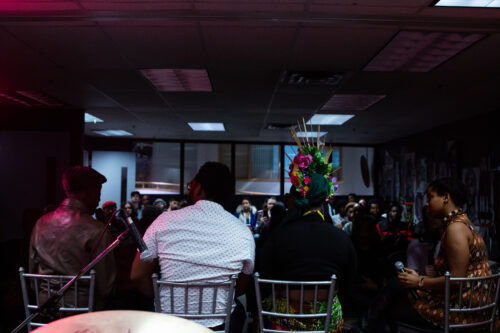Urban planner Cheryll Case recently published The Black Futures on Eglinton Cultural Mapping Study to address gaps in the Eglinton West's urban planning. To humanize the consultation process for the neighbourhood also known as Toronto's Little Jamaica, she employed unconventional tactics. As a result, she documented community concerns like protecting heritage buildings, supporting local Black businesses and improving safety. Additionally, the study outlines opportunities and barriers to Black residents thriving in Eglinton West. Case takes a human rights approach to urban planning and this focus shines through in Black Futures on Eglinton. To learn more, CJRU speaks with Case about the research process, key findings and next steps.
Case says there can be a serious disconnect between urban planning and the local community. This can look like minimal discussions around affordable housing or the cultural significance of neighbourhoods like Eglinton West.
“The cultural interests of the Black community were kind of like a bullet point in a sea of other conversations. So the purpose of this report is to really give attention to things that the community holds dear. And that’s very much so the ability to stay in place and be able to thrive for years and years to come,” she explains.

Reggae Night | Courtesy of Cheryll Case
Page 32 of the study states that the average attendee of Toronto’s community planning consultation is a white, male homeowner over the age of 55. Cheryll hopes to shine a light on more narratives, especially racialized residents and renters. To capture this data, she mentions hosting a Reggae night and publishing a poem book to reach the voices who often go unheard. Case hopes that her approach to urban planning leads to city services that reflect the needs of all community members.
To hear more from Cheryll Case, listen to the interview below.


